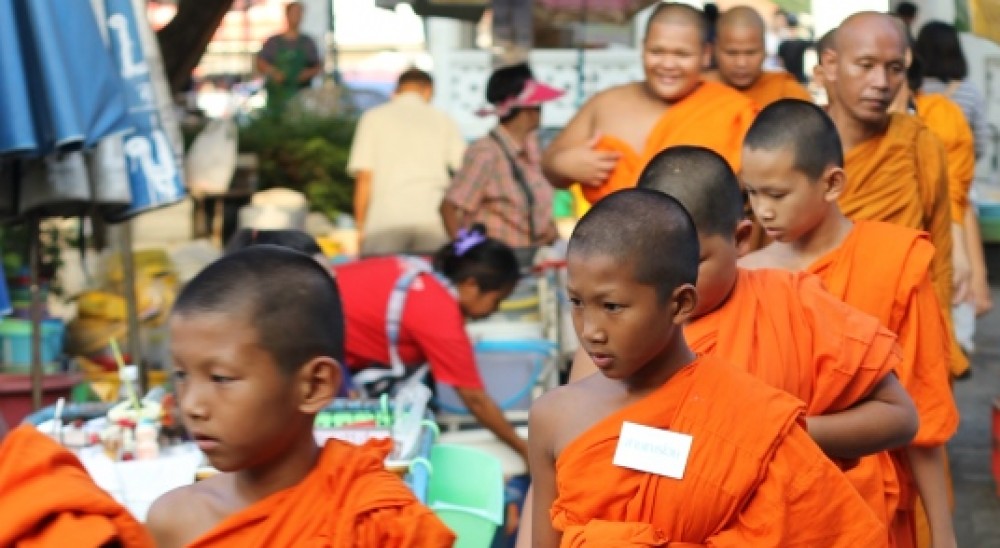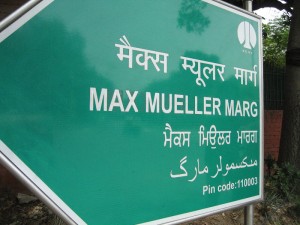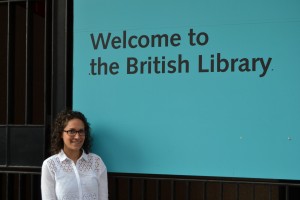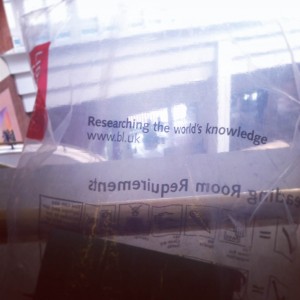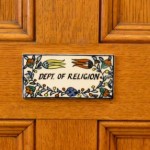As I was tracking down sources for a manuscript in progress which examines scholarly productions of Muslim identities, law, and subjecthood in light of the 1857 Rebellion, I came across a series of seven op-eds in the London-based newspaper, The Times. These op-eds were written in December 1857 and early January 1858, and took on the issue of rebellion, religion, and education; specifically, they each called for the establishment of a publicly- and Crown-supported Oriental Institute, which would educate any and all British subject headed to India in the fields of Indian languages, religions, and histories. The public nature of the debate sheds light, I think, on issues of how common the ideas portrayed were; that this conversation is given space in a daily newspaper represents its intelligibility to its audience, and in turn, the ideas presented about religion, language, and empire might be read as commonplace.
These op-eds were not haphazard commentary, but rather a conversation about British India, language, and religion between heavyweights. Five of the letters were penned under the pseudonyms “Philindus” and “Indophilus” (both of which indicate a love of India). A fabulous archival day was spent realizing that “Philindus,” one of the pseudonyms, was F. Max Müller–the well-known scholar of religion and philologist. In these essays, he argued that, in the wake of the 1857 Rebellion, the teaching of Indian languages and religion was the foremost business of the Empire. In fact, he claimed that the rebellion might have never happened if agents of the Empire had been properly educated in the first place; he credited–or, perhaps, blamed–both a colossal lack of information about religious sensibilities and a lack of linguistic prowess for the rebellion. To illustrate, he wrote:
It was the ignorance of the language that prevented the officers of the East India Company from having any real intercourse with the natives, and taking any interest in their personal conversation. It was the ignorance of language which created a feeling of estrangement, mistrust, and contempt on both sides. (Philindus, “The Neglect of the Study of the Indian Languages Considered as a Cause of the Indian Rebellion,” Letter to Times, dated December 30, 1857)
The other pseudonym, “Indophilus,” belonged to Sir Charles Trevelyan, a British civil servant and administrator. Largely in response to “Philindus’s” original piece, he, too, argued that the appalling lack of British awareness led to distrust amongst “native” Indians, and specifically posited a seven-point plan to establish an Oriental Institute, a publicly- and Crown-supported college meant to educate civil and military service men, as well as clergy, doctors, and laypeople before they went to India.
Ultimately, Müller and Trevelyan disagreed on what ought to have been taught in the Institute they proposed: Müller insisted that Sanskrit would cover the majority of Indic vocabulary, but, additionally Arabic would be helpful to understand the Muslim minority; Trevelyan argued that modern, spoken dialects would be more pragmatic. Both agreed, however, that understanding language meant understanding religion, which in turn meant better management, more security, and a stronger British India. Their exchange was augmented subsequently by M. Monier-Williams and Syed Abdoollah, with both in support of an Oriental Institute. The former supported Müller’s Sanskrit-heavy curricula, and the latter took issue with the other authors’ suggestion that British professors would be ideal. Abdoollah suggested that proper native speakers–i.e., South Asians–be employed, and (in politic language) accused British professors of India and Indic languages of being far too distant to get the accents quite right.
The debate about how an institution of higher learning might be established–complete with rudimentary budget proposals and funding sources–is itself fascinating. But what’s most interesting to me in these essays is how “religion” was deployed. No two authors say quite the same thing, but overall, religion is: imbricated with language(s); required information for effective governance; not to be taken lightly; and, ultimately, to be at least partially blamed for the 1857 Rebellion, both in its immediate and latent causes. One of the events leading up to the Rebellion was the greasing of weapons with animal fat–an act offensive to both Hindus and Muslims. Müller concludes that had civil or military servicemen understood just how offensive this could be, the issue would have resolved itself before becoming one. He writes that Indian civil servants:
ought to know something of Mohamed, the Koran, and the spreading of Mohamedanism, something about the Vedas, about Manu, Buddha, and the Purǎnas before they undertake to act as governors and teachers of Hindus and Mussalmans. (Philindus, “On the Proper Mode of Teaching the Languages of India,” Letter to Times. Dated January 4, 1858. All spellings in original.)
Religion here serves as a primary identity marker, and a primary way by which “governors and teachers” might understand their subjects and pupils. Certainly this is a hallmark of both Orientalist and colonial depictions of religions and religious subjects and in some ways this is simply data that is similar to what scholars of South Asia, colonialisms, and religion have seen before.
However, what’s fascinating and worthy of note is where this information happened: this was a public conversation, written for an obviously literate and educated audience, but public nevertheless. It represents a discourse that linked religion, governance, and language publicly, as in not just for Ivory Tower dwellers, and not merely as a thought experiment. For public consumption, debate, and action. These essays, both individually and when taken together, are a call on Parliament (in some cases explicitly) as well as the general public to form an institution dedicated to teaching language, history, and religion in the service of the British Empire, and as a response to a rebellion. As I parse sources about religion, rebellion, foreign rule in India, and religious belonging, such a public conversation–by such important voices–helps me underscore and frame how widespread “Müllerian” ideas about language and religion may have been, and to what avail.
Given contemporary debates on the utility of humanities in the face of STEM’s rise, it’s easy to forget that religion–as a broad, complicated category as well as those traditions that might comprise it–has long shaped questions and decisions in policy and governance. The op-eds I found not only foreground the creation of an institution that has the sound of a modern land-grant university, but also the vitality and necessity of understanding religion to the British Empire in India. We do not need to agree with Indophilus and Philindus in an instrumental use of religion in the governance of society (and certainly not colonized societies) to appreciate their concern for the importance of religion as a part of public debate and conversation.
Religion, public debate, famed scholars, Orientalism, and calls for new universities for the betterment of Empire and subjects alike. Just one great day in the archives.
